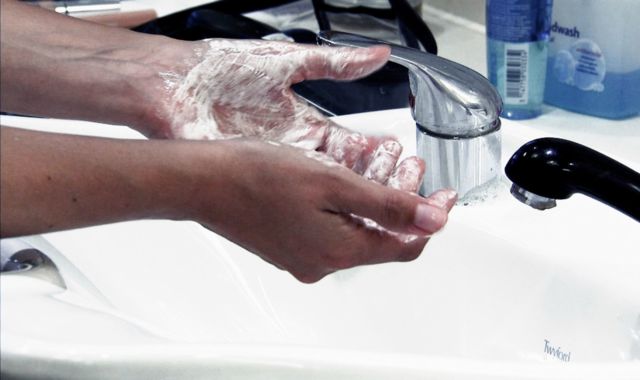-
Tips for becoming a good boxer - November 6, 2020
-
7 expert tips for making your hens night a memorable one - November 6, 2020
-
5 reasons to host your Christmas party on a cruise boat - November 6, 2020
-
What to do when you’re charged with a crime - November 6, 2020
-
Should you get one or multiple dogs? Here’s all you need to know - November 3, 2020
-
A Guide: How to Build Your Very Own Magic Mirror - February 14, 2019
-
Our Top Inspirational Baseball Stars - November 24, 2018
-
Five Tech Tools That Will Help You Turn Your Blog into a Business - November 24, 2018
-
How to Indulge on Vacation without Expanding Your Waist - November 9, 2018
-
5 Strategies for Businesses to Appeal to Today’s Increasingly Mobile-Crazed Customers - November 9, 2018
UK committee recommends ban on microbeads
According to MPs on the Environmental Audit Committee, 680 tons of the tiny plastic balls are used in the United Kingdom each year and just one shower can wash up to 100,000 microbeads down the plughole and into the world’s seas. Microbeads are the tiny little balls that you sometimes find in facial scrubs, shower gels, exfoliating scrubs and some toothpastes. In it’s 42-page report, the EAC is demanding a national ban on microbeads by the end of 2017, in addition to the introduction of a clear labelling scheme during the transitional period of a voluntary phase out.
Advertisement
“Trillions of tiny pieces of plastic are accumulating in the world’s oceans, lakes and estuaries, harming marine life and entering the food chain”.
He explained that while microbeads make a very small contribution to the amount of plastic pollution in the ocean, a ban would be an important first step in addressing this global problem, and send a powerful signal to companies and the public that it is being taken seriously.
“A single shower can result in 100,000 plastic particles entering the ocean”, said Mary Creagh, chair of the House of Commons Environmental Audit Committee, which delivered its recommendation on Wednesday to the government’s Department for Environment, Food and Rural Affairs.
“We need a full legal ban, preferably at an global level as pollution does not respect borders”, said Mary Creagh, the opposition Labour Party lawmaker who chairs the committee.
“If this isn’t possible after our vote to leave the European Union, then the Government should introduce a national ban”.
It is estimated that as much as 86 tonnes of microplastics are released into the environment every year in the United Kingdom from facial exfoliants alone.
Many cosmetic companies have made a voluntary commitment to phase out the use of microbeads by 2020.
Creagh said: “Most people would be aghast to learn that their beauty products are causing this ugly pollution”.
The committee suggests in its report that the cosmetics industry is failing to adequately label products which contain microbeads. “We want a level playing field for all cosmetics companies across all products and all types of plastics”.
“It has been estimated that an average plate of oysters could contain up to 50 plastic particles”.
It says cosmetic microbeads make up less than 4 percent of microplastics entering oceans, but they are an avoidable problem about which much is known. It is estimated that as much as 86 tonnes of microbeads are released into the environment every year in the United Kingdom from facial exfoliants alone, although between 80,000 & 219,000 tonnes of microplastics enter the marine environment across Europe per year.
Advertisement
Opportunities to capture microplastics through enhanced washing machine filtration systems and improved waste and water sewage treatment processes must also be explored.




























